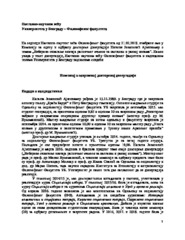Veberovo shvatanje značaja ratničkog ethosa za nastanak i razvoj islama
Weber's understanding of the importance of military ethos for the emergence and development of Islam
| dc.contributor.advisor | Vukomanović, Milan | |
| dc.contributor.other | Вукомановић, Милан | |
| dc.contributor.other | Vukomanović, Milan | |
| dc.contributor.other | Вукомановић, Милан | |
| dc.contributor.other | Molnar, Aleksandar | |
| dc.creator | Jovanović Ajzenhamer, Nataša | |
| dc.date.accessioned | 2019-07-31T14:32:29Z | |
| dc.date.available | 2019-07-31T14:32:29Z | |
| dc.date.available | 2020-07-03T09:53:46Z | |
| dc.date.issued | 2019-05-22 | |
| dc.identifier.uri | http://eteze.bg.ac.rs/application/showtheses?thesesId=6843 | |
| dc.identifier.uri | https://nardus.mpn.gov.rs/handle/123456789/11288 | |
| dc.identifier.uri | https://fedorabg.bg.ac.rs/fedora/get/o:19953/bdef:Content/download | |
| dc.identifier.uri | http://vbs.rs/scripts/cobiss?command=DISPLAY&base=70036&RID=530740631 | |
| dc.description.abstract | Predmet rada je analiza Veberovog shvatanja islama kao religije čija je dogma podređena potrebama ratništva. Osnovni cilj je da se pokaže u kojoj meri je pojednostavljeno shvatanje islama kao religije rata obeleženo orijentalizmom. U radu je primenjena teorijska i pojmovna analiza sa naglaskom na istorijsku genezu razvoja konkretnih teorija i religije. Početna tačka istraživanja je redefinisanje orijentalizma na različite vrednosne orijentacije, uključujući i kategoriju umerenog orijentalizma. Uz pomoć teorijskog okvira koji podrazumeva stepenovanje orijentalističkog pristupa, analizirali smo koji segmente Veberovog tumačenja islama možemo svrstati pod kategoriju orijentalizma a koje možemo iskoristiti kao osnovu za sociološko izučavanje islama. Kroz tri različite dimenzije (klasnu, prostorno-političku i etičku), analizirali smo, sa jedne strane, Veberovu idejnu nit razvoja islama kao religije ratnika i, sa druge strane, drugačije interpretacije islama koje obuhvataju i pacifističke komponente islama. Istraživanje o Veberovoj analizi islama omogućilo nam je da na koherentan i sintetičan način istražimo do sada već mnogo puta elaborirane hipoteze o polimorfnosti procesa racionalizacije, eksluzivnosti kohabitacije između protestantizma i kapitalizma, razvoju harizme od magijskog do sekularnog itd, međutim, pružilo nam je mogućnost da otvorimo do sada nedovoljno proučavane teme kao što je Veberovo shvatanje razlike između ortodoksnog islama i sufizma, uticaj Muhamedove državotvorne politike na razvoj koncepta svetog rata, odnos između prakseološkog i soteriološkog itd. Osnovni zaključak disertacije je da Veberovo tumačenje jeste pod uticajem orijentalizma, ali da postoje segmenti koji su objektivno analizirani i koji su heuristički plodni | sr |
| dc.description.abstract | The subject of the paper is the analysis of Weber's conception of Islam as a religion whose dogma is subordinate to the military needs. The main goal is to show the extent to which simplistic understanding of Islam as a religion of war is marked by Orientalism. Theoretical and conceptual analysis with the emphasis on the historical genesis of the development of concrete theories and religions is applied. The starting point of the research is to redefine Orientalism to various value orientations, including the category of moderate Orientalism. With the help of a theoretical framework which implies the graduation of the Orientalist approach, we have analyzed which segments of Weber's analysis of Islam can be classified under the category of Orientalism and which we can use as the basis for the sociological study of Islam. Through three different dimensions (class, spatial-political and ethical), we have analyzed, on the one hand, the idea of the development of Islam as a religion of warriors and, on the other hand, different interpretations of Islam, which also include pacifist components of Islam. The research on Weber's analysis of Islam has enabled us to investigate, in a coherent and synthetic way, the many times elaborated hypotheses on the polymorphism of the process of rationalization, the exclusiveness of cohabitation between Protestantism and capitalism, the development of charisma from magic to secular, etc., however, it enabled us to open so far insufficiently studied topics such as Weber's understanding of the difference between orthodox Islam and Sufism, the influence of Muhammad's nationalist policy on the development of the concept of the world war, the relationship between practical and soterilogical, and so on. The basic conclusion of the dissertation is that Weber's interpretation is under the influence of Orientalism, but that there are segments that are objectively analyzed and who are heuristically incentive. | en |
| dc.format | application/pdf | |
| dc.language | sr | |
| dc.publisher | Универзитет у Београду, Филозофски факултет | sr |
| dc.relation | info:eu-repo/grantAgreement/MESTD/Basic Research (BR or ON)/179035/RS// | |
| dc.rights | openAccess | en |
| dc.rights.uri | https://creativecommons.org/licenses/by-nc-nd/4.0/ | |
| dc.source | Универзитет у Београду | sr |
| dc.subject | Maks Veber | sr |
| dc.subject | Max Weber | en |
| dc.subject | islam | sr |
| dc.subject | orijentalizam | sr |
| dc.subject | ethos | sr |
| dc.subject | klasna dimenzija nastanka religija | sr |
| dc.subject | prostorno oblikovanje religijske zajednice | sr |
| dc.subject | soteriologija | sr |
| dc.subject | Islam | en |
| dc.subject | Orientalism | en |
| dc.subject | ethos | en |
| dc.subject | classical dimension of the emergence of religions | en |
| dc.subject | spatial design of the religious community | en |
| dc.subject | soteriology | en |
| dc.title | Veberovo shvatanje značaja ratničkog ethosa za nastanak i razvoj islama | sr |
| dc.title.alternative | Weber's understanding of the importance of military ethos for the emergence and development of Islam | en |
| dc.type | doctoralThesis | en |
| dc.rights.license | BY-NC-ND | |
| dc.identifier.fulltext | http://nardus.mpn.gov.rs/bitstream/id/25431/IzvestajKomisije20723.pdf | |
| dc.identifier.fulltext | http://nardus.mpn.gov.rs/bitstream/id/25430/Disertacija.pdf | |
| dc.identifier.fulltext | https://nardus.mpn.gov.rs/bitstream/id/25431/IzvestajKomisije20723.pdf | |
| dc.identifier.fulltext | https://nardus.mpn.gov.rs/bitstream/id/25430/Disertacija.pdf | |
| dc.identifier.rcub | https://hdl.handle.net/21.15107/rcub_nardus_11288 |



